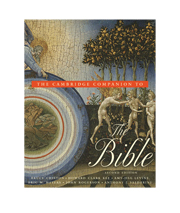The Formation of Christian Communities
Published online by Cambridge University Press: 28 May 2012
Summary
JESUS AND THE COVENANT
Jesus and the judaism of his time
Jesus shared with his contemporaries a profound connection to Judaism; the covenant with Abraham, Isaac, and Jacob served for him more as the ground faith than as a particular belief. To his mind, as the Gospels show, the patriarchs were living, enduring presences that guaranteed God's eternal care for his people (Mark 12:26–7; Matthew 22:31–2; Luke 20:37–8). What God had done for Israel and disclosed to Israel in the past shaped the significance of their lives in the present and into the future. Jesus assumed, as did most Jews in his time, that Israel's Scriptures were to be interpreted and appropriated in new ways, because the present was as much in God's hands as the past. Especially given the changed circumstances in which the land promised to Israel lay under Roman dominance, much Judaic interpretation turned on the issue of how the divine promises to Abraham and the patriarchs were to be realized.
In the tradition of the prophet Jeremiah, many Israelites awaited God's renewal of the covenant (Jeremiah 31:31–4). A basic question for them became, What is the essence of belonging to God's people? In postexilic Judaism, answers to that question varied widely. The writings that came to be called the New Covenant (a more accurate rendering than “New Testament”) need to be seen in the context of Jesus' distinctive attempt, along with those of his followers and successors, to understand, reclaim, and fulfill the covenantal tradition.
- Type
- Chapter
- Information
- The Cambridge Companion to the Bible , pp. 481 - 673Publisher: Cambridge University PressPrint publication year: 2007

